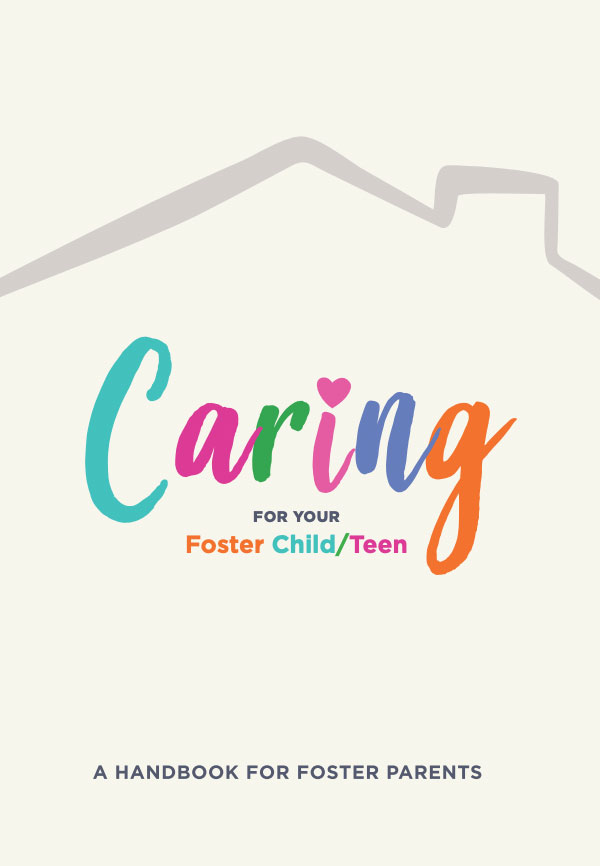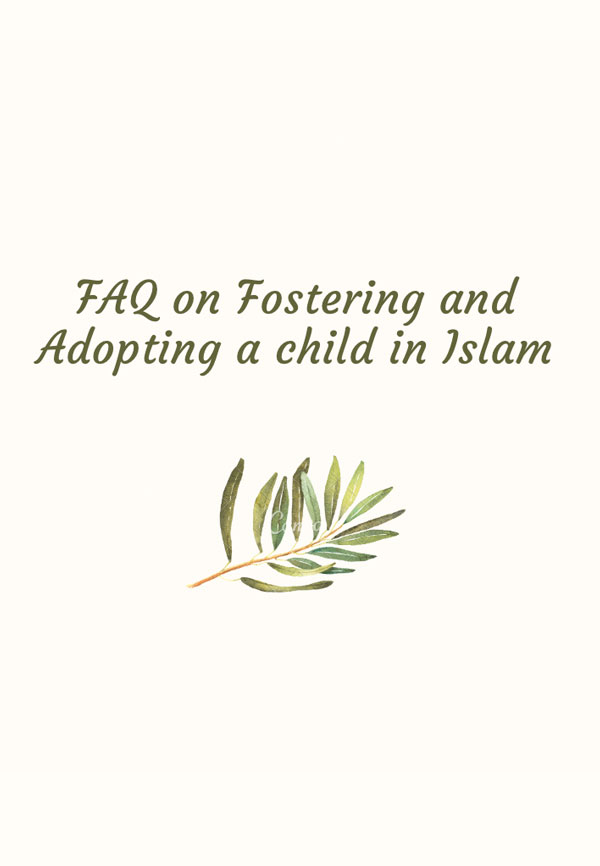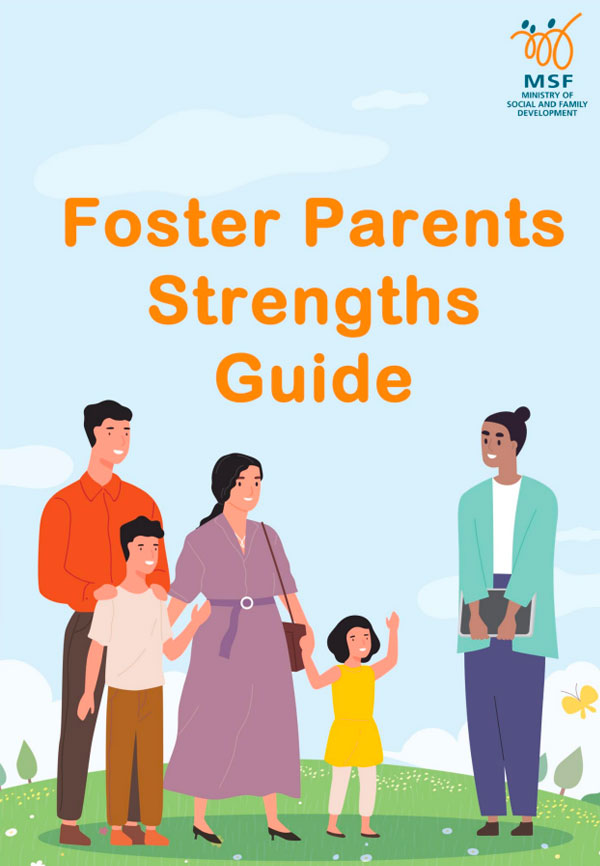Frequently Asked Questions
Foster parents in the HFG-SG community respond to the FAQs we regularly received. Here’s what they have to say.

What is fostering?
Fostering is a temporary care arrangement for children who cannot be taken care of by their immediate family members. These children stay with foster parents until their parents have resolved their own issues.Ameera, fostering since 2018
For us, fostering is about providing stability, love and support to children who need it the most. We were drawn to fostering because we believe that supporting a child with the hope of reuniting them with their families is a meaningful part of reconciliation. Opening our home and our hearts to a child in need and providing them with stability is an enriching process. While there are challenges and difficulties along the way, seeing growth in our foster children and in ourselves helps us see fostering as a meaningful and rewarding journey.Renfred and Monica, fostering since 2021In our families, we provide safe and stable places for our foster children to develop a healthy sense of personal identity.Mark and Sue, fostering since 2018
Who are the children that need foster care?
These are children who have been removed from their families due to safety concerns, were neglected or abandoned. The aim is for foster children to return to their families once their families are assessed to be able to resume care for them. Juliana, fostering since 2014
What if I don’t have enough love in me to care for a foster child?
We cannot love in our own strength; however, you need to believe enough in the cause to be committed. By being committed to the care of the child, you are already showing love to the child.Sarah, fostering since 2013
I am not a great parent to my own kids; how can I qualify?
No parent is perfect. If you are committed to care for and protect your foster child to the best of your ability, and you have a teachable heart that’s willing to learn new ways to care for vulnerable children, you’ve got everything you need to be a foster parent.Sarah, fostering since 2013
I am concerned that my children will not be able to adjust to the new foster child in the family. How can I prepare them?
In my experience, birth children generally adapt to foster children. Sometimes, they can be sources of comfort for the foster children, welcoming them and easing them into a new life with our family.
Have a good talk with your own children to prepare them for the changes to come. Explain why you are choosing to foster a child and the importance of fostering as a testimony of your faith. Tell them to expect changes when the foster child comes in, but through prayer and support, the family will be able to face and overcome any challenges that arise. Most of all, reassure them that as a family, we’ll see this through together.Sarah, fostering since 2013
How old should my children be before I start to foster?
When it comes to welcoming a foster child to the family, there is no correct age.
I’ve found that my children who grew up alongside foster siblings have developed a sense of empathy for others.Sarah, fostering since 2013
How can I prepare my home and family before fostering a child?
The first thing I did was to child-proof my house. As I wanted to foster younger children, I had window grilles installed. Preparing the family emotionally for the fostering process is important too. I shared success stories on fostering to help them understand the process better.
Muslims who are considering fostering may refer to a helpful guide produced by MUIS.Ameera, fostering since 2018When I received a placement at a short notice and had only a few hours to prepare for the foster child's arrival, I texted the HFG-SG community group chat to ask for clothes, diapers, a car seat and even a baby cot!
By the next day, I was able to gather the necessary items passed on or contributed by other foster parents, or from their extended network of friends. That's the support I appreciated from being in the HFG-SG fostering community, who was able to rally around my needs in the quickest possible way. For new foster parents, this is an important form of support!Sarah, fostering since 2013
How do I address the concerns of my family in my decision to foster?
Be honest with them: it may not be easy. Listen to their concerns, give them a chance to express their thoughts and views, share your reasons and motivations, and gain their support as to why we are doing this as a family.Juliana, fostering since 2014
Aside from discussing as a couple about the decision to foster, we talked to our children before we accepted any new foster child placement. We needed them to understand that we are a team when we take in a foster child.Land and Joyce, fostering since 2016
It is important to involve everyone in the family in the fostering decision. For our family, we made the decision to foster in consultation with our children. We would not proceed if anyone in our family decided against fostering.Mark and Sue, fostering since 2018
What should I expect during the application and assessment process?
During the application process, my household (children and helper included) was interviewed by the fostering agency and Ministry of Social and Family Development’s (MSF) officers, and was asked how we felt about fostering and welcoming a foster child to our home. My husband and I underwent medical and other screenings and we received home visits to assess the suitability of our home environment.Sarah, fostering since 2013During one of the interviews, we were given scenarios of difficult situations, and asked what we would do. It was quite a reality check as we realised the scale of the task ahead of us!Renfred and Monica, fostering since 2021
Who bears the financial responsibilities of my foster child's education?
MOE school fees are waived. There is a fostering allowance to defray the cost of caring for the foster child. There are subsidies for childcare, student care and medical treatment to help with the child’s expenses. Sarah, fostering since 2013
The finances for our foster child's education and daily needs come from the MSF fostering allowance, so it helps to offset expenses. It's a load off our minds.Juliana, fostering since 2014
Will I be meeting the birth parents of my foster child?
In most cases, unless informed in advance by the Foster Care Worker, we do not meet the birth parents of our foster children. Foster parents may choose to minimise or not to interact with the birth parents of the foster children if they are uncomfortable to do so. Discuss with the Foster Care Worker or Child Protection Officer (CPO) on this matter. Juliana, fostering since 2014Most of the communication regarding the welfare of the child will be done through the CPO. Apart from the general well-being of the child, it is best to direct all questions that the birth parents may have to the CPO.Sarah, fostering since 2013
What is the current situation with fostering in Singapore?
There is still a need for more foster families to care for children in need. With more foster families, more children in need will be able to experience family-based care.Juliana, fostering since 2014
Most of the time, people have various misconceptions of what fostering is and often confuse it with adoption. Others may find it noble when they hear that we are fostering but do not make the effort to find out more on how they may do the same.Land and Joyce, fostering since 2016I’ve read in the media that while there are over 500 children who are in foster care, there’s an equal number of children who are in Children's Homes. I strongly feel if more families could foster, more of these children could benefit from being cared for in a family home.
When I first started fostering, I hardly met other foster parents. I’m glad to have since joined the HFG-SG support community as other foster parents’ experiences and encouragement have spurred me on and helped my family and myself to continue fostering through the years.
My hope is for more families to step up and open their hearts and homes, taking up fostering as a family ministry to care for vulnerable children.Sarah, fostering since 2013
How long does the fostering process last for?
We have fostered five teens/pre-teens in the last two years, ranging from short term respite (two weeks) to long term placements (at least 12 months).
A child's situation can be dynamic. The length of the fostering process is dependent on the details of the case and the Child Protection Officer will provide an estimation. The duration of the stay will depend on the needs and situation of the child and the birth family. It can range for a few weeks to several months or one to two years.Renfred and Monica, fostering since 2021It really depends. For my very first foster daughter, the initial work with her birth family had limited progress. We were informed that she would be staying with us for a few years due to this. However, Child Protective Service at MSF managed to start the reintegration process earlier, and because of this, she was placed with her grandparents after one year of foster care.Tara, fostering since 2019
Can I move my foster child to another school?
Changing schools is not preferred unless absolutely necessary, so as to minimise the number of changes in the child’s life. The preference is to continue attending the same school. As much as possible, we try to maintain the status quo for everything so as not to make too many changes within a short period of time.Juliana, fostering since 2014However, there are cases in which the child is already enrolled in a school, and a move may be too disruptive. In this case, the foster parent may be supported by the fostering agency with transport if the school is too far away. The foster child can also be taught how to travel independently if it is assessed by MSF/fostering agency to be suitable.
Otherwise, the Foster Care Worker can support foster parents with the request to change schools. However, this decision is only made after all factors have been considered and if the child’s parents are agreeable to it.Land and Joyce, fostering since 2016
How should my foster child address me?
Our foster children call us Aunty and Uncle because they're older (teens/pre-teens). In other families, they may address foster parents as Mum and Dad. Renfred and Monica, fostering since 2021We accept whichever option they choose to call us: Daddy and Mummy or Aunty and Uncle, there are no hard and fast rules.Juliana, fostering since 2014One approach is to ask the foster child how they would prefer to address you: Uncle and Aunty, or Mummy and Daddy? Another option is to give the foster child time to adjust, and broach the subject again when they're comfortable. Land and Joyce, fostering since 2016By what they are comfortable with. Always seek their thoughts on what they would like to call you and your spouse.Ameera, fostering since 2018
Can my foster child join our family trips overseas/outside of Singapore?
Talk to your Foster Care Worker first. Bringing your foster child overseas is subject to their parents’ consent.
We have brought our foster children overseas with us; however, this was challenging in the beginning. There's two key matters to take care of.
Firstly, the foster child requires approval from their own parents to travel. Getting approval has to be in writing, and it needs to be facilitated by the Foster Care Worker. We have experienced situations in which the child’s parents gave their verbal agreement, but changed their mind at the last minute. Our foster child was disappointed that they couldn't join us for the trip.
Secondly, the foster child requires a valid passport. The passport would usually be held by their own parents. Contact the Foster Care Worker on how to get the passport for the trip. If they do not have a passport, work with the Foster Care Worker to arrange for a passport application after obtaining approval from their parents to travel overseas with the child.Land and Joyce, fostering since 2016
Work closely with the Foster Care Worker to obtain permission from the parent. In my case, I completed a form, provided by the Foster Care Worker, to indicate the travel dates, details and destinations. The form must be signed off by the foster child’s parents to indicate their consent.
Do not make any travel booking for the foster child until their parents’ consent has been obtained for the child to travel with you.
However, sometimes, the foster child’s parents may not respond in time. So you would need to work with the Foster Care Worker to get some sort of written consent first.Vivienne, fostering since 2020
What kind of support can I expect from the HFG-SG community?
We were able to ask questions in the HFG-SG group chat and learn from other foster parents’ experiences (e.g how to get access to Parent Gateway, medical appointments, behavioural issues, or adjustments of a foster child to a new home environment etc.).
We have benefited from sharing information, experiences and resources.
Some foster parents may receive an urgent placement for a baby, and within a day or two, receive assistance with necessities from other foster parents.Land and Joyce, fostering since 2016Many, including ourselves, found it helpful to have other foster parents provide a listening ear, or support each other in group chats, as well as offer help with respite care.
During our first three years, we thought of giving up. However, having someone hear our concerns, or just chatting with other foster parents has helped and encouraged us to continue.Tara, fostering since 2019
How can I help a foster child who may have emotional problems?
I found the additional training provided by the Social Service Institute (SSI), especially those related to trauma, extremely helpful in informing and equipping me with the ability to support my foster child with their emotional needs.Ameera, fostering since 2018It is important to get help for foster children who may face emotional struggles. Talk to your Foster Care Worker. The strength of being in a support group like HFG-SG is that there are many professionals who are fostering, and they could point you to counsellors who may be able to help your foster child.
Mark and Sue, fostering since 2018Sarah, fostering since 2013
How should I treat my foster child in relation to my own children?
Treat your foster child the same way as you would treat your own children. This includes playing with them, supporting them in their studies, spending time as a family, as well as having one-to-one bonding time with the child.Land and Joyce, fostering since 2016We see our foster children as part of the family, and because of this, we are as impartial as possible.Juliana, fostering since 2014
What should I tell my foster child about their birth parents?
Let them know that parents go through various challenges in life, that their birth parents are going through a tough situation at the present. Comfort them and explain that this affects the whole family, but assure them that there are many people who care for their family and will do what they can do to help.Land and Joyce, fostering since 2016
Initially, I thought to keep the child away from anything that may be perceived as negative about their birth family. However, I slowly learnt that it is more important that the child is kept aware of their situation. Keeping an open communication channel is important. We can work closely with the Foster Care Worker to share information in a factual and informative manner so as to guide the child on how to respond or view the situation at hand.Vivienne, fostering since 2020Be honest with them. Talk positively about the family.
Ameera, fostering since 2018
How can I reach out to my foster child if they're closing themselves off emotionally?
Ask for advice from your Foster Care Worker.
Be patient. Depending on their age, using stuffed toys, object lessons or role-playing tactics can help the foster child to open up. Trust takes time. Give the child as much time as possible.Juliana, fostering since 2014
We experienced this with our foster daughter who was 7 years old then. It was painful, as even after two weeks of trying to connect with her, she rejected me as a foster mum. However, after much prayer and in time, we finally broke through and connected with her. This may not be the case for everyone, but I believe the key is to have a willing mindset, and deciding time and time again to give unconditional love. For some of our foster children, this was a decision we had to come back to many times.Land and Joyce, fostering since 2016
How do I prepare my foster child to leave us?
In our case, I sat down and talked it through with my foster daughter. As she wanted to maintain a relationship with my family, she identified the items she wanted to bring home and kept some of her belongings with us to use when she has a stay-over. We also reassured her that we would always love and care for her, even though she was no longer staying with us.Tara, fostering since 2019
With the help of Foster Care Workers, we created a storyline and timeline for our foster children so that they could better anticipate when they would return to their family permanently. We also encouraged them to spend time well with their family during their access visits or on home leave.Ameera, fostering since 2018
Have dialogues with the child and help them understand that reunion with their family is a positive move. It means their parents have worked hard to ensure that they are able to take care of the child and be reunited as a family.
Although they are leaving your family, assure them that you are not abandoning them and will remember the good times. Always remain positive.Juliana, fostering since 2014
How do I prepare myself and my family for their departure?
For us, it was very helpful to talk it through with our foster child as well as speaking with other foster parents. Having a community that understood what we felt was so important during that period when we prepared for their departure.Tara, fostering since 2019
Throughout my family’s fostering journey, a key takeaway from the training that we attended was a deep understanding that the best outcome for a foster child is their birth parents being ready to bring them home, and they can be reintegrated.
No matter how we have grown to love our foster child, our affection means we will give our best to support the reintegration with their family when they are ready. We still miss our foster children, but as long as we remember they have been successfully reunited, the process of letting go is easier.Land and Joyce, fostering since 2016
Have you ever regretted the decision to foster?
For my family, there has never been a moment in which we have regretted fostering. There is nothing better that we can do for a vulnerable child, than to provide them with a home filled with love and acceptance.Mark and Sue, fostering since 2018
Can I see my foster child after they are reintegrated with their family?
It is a case-by-case basis and is dependent on the child, their parents and officers in charge of the case. In some cases, continued contact provides a good transition and on-going support for both the child and their parents. In other cases, regular contact would hinder them from settling down again as a family. This should be discussed and considered carefully with professionals, where possible.Juliana, fostering since 2013There is no harm in asking but it is on a case-by-case basis, with the agreement of the child’s family. You may also need to set your own boundaries should such a relationship continue after the fostering period.Ameera, fostering since 2018Vivienne, fostering since 2020We always consult with our Foster Care Workers first. There could be certain considerations or situations that we need to be aware of.Land and Joyce, fostering since 2016In our case, we had cultivated a relationship with our foster daughter’s family. They were comfortable with us to maintain the relationship and ties with her. We have since brought her out to celebrate her birthday every year, with the consent of her parents.
Tara, fostering since 2019
How can I support other foster parents in their own journeys?
Foster Care Workers reach out to us to speak to other foster parents who are struggling with certain aspects of fostering. That's one way we can help other foster parents, because a listening ear is all it takes to renew strength for the journey.
Occasionally, we meet other foster parents at large group activities or events. We also have smaller groups within the HFG-SG community, where we get together with other foster families and their foster children. Knowing each other makes it easier to reach out whenever a foster parent needs a respite carer. It also helps when the foster child is already familiar with the respite carer.
Land and Joyce, fostering since 2016
Who are the MSF-appointed fostering agencies and what types of support can I expect?
There are five appointed agencies to provide support to foster parents and foster children. You can find them here.
A Foster Care Worker will be attached to every foster parent to provide guidance and support. The officer will maintain contact with you and your foster child through regular phone calls and home visits. Sarah, fostering since 2013
What are the next steps if I want to find out about fostering?
I would encourage you to sign up for a fostering info session with any of the fostering agencies. At these sessions, you can hear from foster parents about their fostering journey and find out what the act of fostering involves. Another option is to join HFG-SG’s Facebook group to keep updated of events and activities organised by HFG-SG.Sarah, fostering since 2013
For other fostering service-related questions, please visit the Ministry of Social and Family Development’s website here.
Download the list of resources for foster families and maintained by the Ministry of Social and Family Development.
















